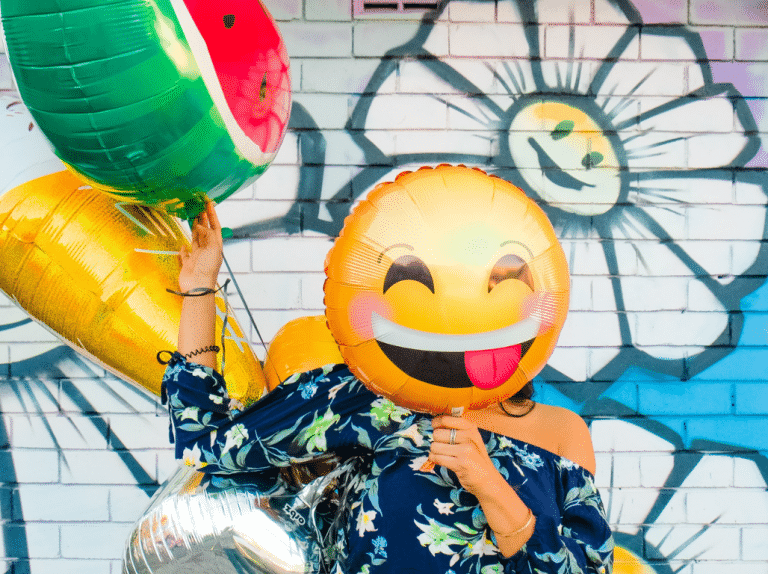The Myth Of Happiness Is That You Find It And Then Keep It
The myth of happiness has to be overcome to actually have the happiness you seek. If you are like me, then figuring out how to be happy has been an important goal for a long time. If you are like me, it’s also been elusive at times. Now is an excellent time to figure out how to be happy if you struggle with mood issues. See, happiness comes from satisfaction around all areas of life. Happiness is also developed from the inside through self-acceptance, gratitude, and practice. But, I didn’t always know this…
For many years, I was a slave to the myth of happiness. See, I got confused about what happiness is and how it is achieved. It’s not my fault, though. I grew up with fairytales and was brainwashed by the idea that there is a happily ever after. My first addiction was fantasy. Fantasy and sweets, anyway.
The Myth Of Happiness Is A Fantasy
You might have had some conventional ideas of what happiness should look like if you grew up on fairytales and fantasy. I also had a complicated childhood mired by trauma, death, and addiction. This made me a sad kid, then an angry teenager, and a completely addicted young adult. I was not happy, I did not understand how to be happy, and probably didn’t think it was something I wanted or could achieve. The myth of happiness for me was these movies and shows, a fantasy happy that didn’t apply to me. Then there was my reality at the time, which was I was an active addict. When I felt happy, it was a chemically achieved reaction. Within a few minutes, happiness always turned to anxiety. With time in active addiction, there’s no happiness, and eventually, sickness and despair reign supreme.
The Myth Of Happiness Has To Be Overcome
I didn’t want to be a mean, unhappy person anymore. I didn’t want to wake up with dread, afraid to face the day. I could no longer stand feeling uncomfortable and anxious all the time, and that was the impetus for all of my change. I wanted to be happy and feel good about myself. I wanted to be happy, and I was willing to do whatever people told me to do to find it.
The Myth Of Happiness Hurts When You Believe It
Last weekend, I had a lovely conversation with a sponsee. She was troubled by the idea that she could not be happy ongoing, that joy would always be fleeting for her, and her automatic reset of believing things won’t work out would torment her for life. I felt her fear as she spoke. I know it all too well. Here’s the thing about happiness. You don’t magically find it. You don’t wake up after suddenly meeting someone special or having huge career success and wake up soul-satisfied happy. You may feel joy over exciting events, but it will pass. To be happy, you first have to figure out what happiness looks and feels like to you. Then you take action to achieve those things. Once you have some of the things you want, you practice.
When you’ve had a lifetime of sadness, it doesn’t just go away. You have to experience feeling different and then do things daily to help maintain that feeling.
To Break The Myth Of Happiness Know What Makes You Happy
First, write down what you think will make you happy. When I first tried this exercise, I was SHOCKED that I actually had many of the things I thought would make me happy. The other interesting thing I learned was that there are plenty of things I still want (more money, more success), but that has nothing to do with happiness.
Things I want are my ambitions, and they are tied to my ego. Often good-intentioned things that end badly, so put them in their place.
The ambitions and ego-driven stuff are not the things that make me feel safe and cared for at the end of the day. Knowing the difference between the two makes life a lot nicer. It’s not that I don’t feel bad sometimes because I don’t have everything I want, but I am quite sure those things would be meaningless without the friendships, relationships, dogs, recovery, etc.
Second, once you know what makes you happy, the trick is to practice gratitude, mindfulness, and manifestation. I know, I’m going into that witchy territory with some of these words, but I swear they work.
The more I focused on being present in the moment, enjoying my circumstances, and continuously telling the universe what I want, the more showed up in my life. The more I practiced gratitude for what I have and focused on my vision, the more balanced I became with positive thoughts. Eventually, the good thoughts outweighed the bad. That’s when I realized I was happy. Not only when something good happened but most the time. I changed my default from irritable, restless, and discontent to positive, calm, and content. Most of the time, anyway.
All of this takes time, and some of it is better done with professionals, but it’s a way of training your brain to act differently. And it worked for me. Obviously, it won’t work all the time. Since the pandemic started, I’ve felt increasingly anxious and depressed and find myself having to go back to basics. But, tools for sobriety work and tools for happiness work, so figure out what yours should be and keep them handy.





















